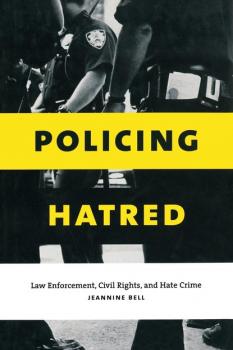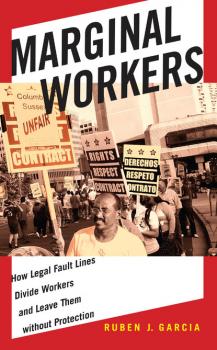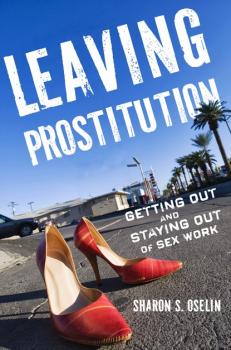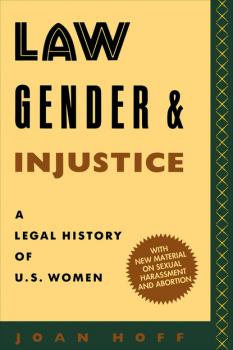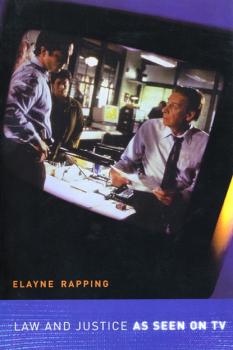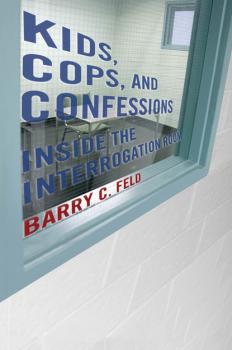ТОП просматриваемых книг сайта:
Юриспруденция, право
Различные книги в жанре Юриспруденция, право, доступные для чтения и скачиванияАннотация
Arizona’s controversial new immigration bill is just the latest of many steps in the new criminalization of immigrants. While many cite the presumed criminality of illegal aliens as an excuse for ever-harsher immigration policies, it has in fact been well-established that immigrants commit less crime, and in particular less violent crime, than the native-born and that their presence in communities is not associated with higher crime rates. Punishing Immigrants moves beyond debunking the presumed crime and immigration linkage, broadening the focus to encompass issues relevant to law and society, immigration and refugee policy, and victimization, as well as crime. The original essays in this volume uncover and identify the unanticipated and hidden consequences of immigration policies and practices here and abroad at a time when immigration to the U.S. is near an all-time high. Ultimately, Punishing Immigrants illuminates the nuanced and layered realities of immigrants’ lives, describing the varying complexities surrounding immigration, crime, law, and victimization. Podcast: Susan Bibler Coutin, on the process and effects of deportation —Listen here.
Аннотация
Who should police corporate misconduct and how should it be policed? In recent years, the Department of Justice has resolved investigations of dozens of Fortune 500 companies via deferred prosecution agreements and non-prosecution agreements, where, instead of facing criminal charges, these companies become regulated by outside agencies. Increasingly, the threat of prosecution and such prosecution agreements is being used to regulate corporate behavior. This practice has been sharply criticized on numerous fronts: agreements are too lenient, there is too little oversight of these agreements, and, perhaps most important, the criminal prosecutors doing the regulating aren’t subject to the same checks and balances that civil regulatory agencies are. Prosecutors in the Boardroom explores the questions raised by this practice by compiling the insights of the leading lights in the field, including criminal law professors who specialize in the field of corporate criminal liability and criminal law, a top economist at the SEC who studies corporate wrongdoing, and a leading expert on the use of monitors in criminal law. The essays in this volume move beyond criticisms of the practice to closely examine exactly how regulation by prosecutors works. Broadly, the contributors consider who should police corporate misconduct and how it should be policed, and in conclusion offer a policy blueprint of best practices for federal and state prosecution.Contributors: Cindy R. Alexander, Jennifer Arlen, Anthony S. Barkow, Rachel E. Barkow, Sara Sun Beale, Samuel W. Buell, Mark A. Cohen, Mariano-Florentino Cuellar, Richard A. Epstein, Brandon L. Garrett, Lisa Kern Griffin, and Vikramaditya Khanna
Аннотация
Prison, Inc. provides a first-hand account of life behind bars in a controversial new type of prison facility: the private prison. These for-profit prisons are becoming increasingly popular as state budgets get tighter. Yet as privatization is seen as a necessary and cost-saving measure, not much is known about how these facilities are run and whether or not they can effectively watch over this difficult and dangerous population. For the first time, Prison, Inc. provides a look inside one of these private prisons as told through the eyes of an actual inmate, K.C. Carceral who has been in the prison system for over twenty years.
Информация о книге
Автор произведения K.C. Carceral
Жанр Юриспруденция, право
Серия Alternative Criminology
Аннотация
Policing Hatred explores the intersection of race and law enforcement in the controversial area of hate crime. The nation’s attention has recently been focused on high-profile hate crimes such as the dragging death of James Byrd and the torture-murder of Matthew Shepard. This book calls attention to the thousands of other individuals who each year are attacked because of their race, religion, or sexual orientation. The study of hate crimes challenges common assumptions regarding perpetrators and victims: most of the accused tend to be white, while most of their victims are not. Policing Hatred is an in-depth ethnographic study of how hate crime law works in practice, from the perspective of those enforcing it. It examines the ways in which the police handle bias crimes, and the social impact of those efforts. Bell exposes the power that law enforcement personnel have to influence the social environment by showing how they determine whether an incident will be charged as a bias crime. Drawing on her unprecedented access to a police hate crime unit, Bell’s work brings to life the stories of female, Black, Latino, and Asian American detectives, in addition to those of their white male counterparts. Policing Hatred also explores the impact of victim’s identity on each officers handling of bias crimes and addresses how the police treat defendants’ First Amendment rights. Bell’s vivid evidence from the field argues persuasively for the need to have the police diligently address even low-level offenses, such as vandalism, given their devastating cumulative effects on society.
Информация о книге
Автор произведения Jeannine Bell
Жанр Юриспруденция, право
Серия Critical America
Аннотация
As scores of death row inmates are exonerated by DNA evidence and innocence commissions are set up across the country, conviction of the innocent has become a well-recognized problem. But our justice system makes both kinds of errors—we acquit the guilty and convict the innocent—and exploring the reasons why people are acquitted can help us to evaluate the efficiency and fairness of our criminal justice system. Not Guilty provides a sustained examination and analysis of the factors that lead juries to find defendants “not guilty,” as well as the connection between those factors and the possibility of factual innocence, examining why some criminal trials result in not guilty verdicts and what those verdicts suggest about the accuracy of our criminal process.
Аннотация
Undocumented and authorized immigrant laborers, female workers, workers of color, guest workers, and unionized workers together compose an enormous and diverse part of the labor force in America. Labor and employment laws are supposed to protect employees from various workplace threats, such as poor wages, bad working conditions, and unfair dismissal. Yet as members of individual groups with minority status, the rights of many of these individuals are often dictated by other types of law, such as constitutional and immigration laws. Worse still, the groups who fall into these cracks in the legal system often do not have the political power necessary to change the laws for better protection. In Marginal Workers, Ruben J. Garcia demonstrates that when it comes to these marginal workers, the sum of the law is less than its parts, and, despite what appears to be a plethora of applicable statutes, marginal workers are frequently lacking in protection. To ameliorate the status of marginal workers, he argues for a new paradigm in worker protection, one based on human freedom and rights.
Аннотация
While street prostitutes comprise only a small minority of sex workers, they have the highest rates of physicaland sexual abuse, arrest and incarceration, drug addiction, and stigmatization, which stem from both their public visibility and their dangerous work settings. Exiting the trade can be a daunting task for street prostitutes; despite this, many do try at some point to leave sex work behind. Focusing on four differentorganizations based in Chicago, Minneapolis, Los Angeles, and Hartford that help prostitutes get off the streets, Sharon S. Oselin’s Leaving Prostitution explores the difficulties, rewards, and public responses tofemale street prostitutes’ transition out of sex work. Through in-depth interviews and field research with street-level sex workers, Oselin illuminates their pathways into the trade and their experiences while in it, and the host of organizational, social, and individual factors that influence whether they are able to stop working as prostitutes altogether. She also speaks to staff atorganizations that aid street prostitutes, and assesses the techniques they use to help these women develop self-esteem, healthy relationships with family and community, and workplace skills. Oselin paints a full picture of the difficulties these women face in moving away from sex work and the approaches that do and do not work to help them transform their lives. Further, she offers recommendations to help improve the quality of life for these women. A powerful ethnographic account, Leaving Prostitution provides an essential understanding of getting out and staying out of sex work.
Аннотация
In this widely acclaimed landmark study, Joan Hoff illustrates how women remain second- class citizens under the current legal system and questions whether the continued pursuit of equality based on a one-size-fits-all vision of traditional individual rights is really what will most improve conditions for women in America as they prepare for the twenty-first century. Concluding that equality based on liberal male ideology is no longer an adequate framework for improving women's legal status, Hoff's highly original and incisive volume calls for a demystification of legal doctrine and a reinterpretation of legal texts (including the Constitution) to create a feminist jurisprudence.
Информация о книге
Автор произведения Joan Hoff
Жанр Юриспруденция, право
Серия Feminist Crosscurrents
Аннотация
Law and Justice as Seen on TV examines the impact, significance, and social and political problems raised by the enormous onslaught of law-related television programming, both fiction and nonfiction, in the years since the rise of live televised trials as major media events. The book weaves together the various strands—media history and analysis, legal history and policy, and the national turn to the political right in the last decades—which gave birth to this trend and has kept it thriving and growing, by leaps and bounds, to the present day. Beginning with the history of courtroom drama on TV and its various contradictions and shifts, since the late 1940s to the present, the book analyzes the various entertainment series and genres that have so proliferated in recent years, giving special attention to such popular and influential series as «Law and Order» and «Cops.» The second section begins by charting the complex and contested history of the coming of cameras to the courtroom and the way in which that legal decision led to televised trials and to the rise of Court TV. It examines as especially interesting and important the major trials—such as those of the Menendez brothers, O.J. Simpson, and Timothy McVeigh—which helped to shape the way television came to frame trials and their social implications for public consumption. From there it examines major social issues—gender violence, youth crime, family dysfunction, victims' rights which, with the rise of the courtroom as a major political and television arena, have come to be viewed largely as legal issues to be discussed and determined in legal terms by Americans in general. Accessible and lucid, Law and Justice as Seen on TV concludes with an examination of the broad implications of this social and cultural trend, closing with some thoughts about its expansion, on television and in the actual legal arena, during the «war on terrorism» in the wake of 9/11.
Аннотация
Juveniles possess less maturity, intelligence, and competence than adults, heightening their vulnerability in the justice system. For this reason, states try juveniles in separate courts and use different sentencing standards than for adults. Yet, when police bring kids in for questioning, they use the same interrogation tactics they use for adults, including trickery, deception, and lying to elicit confessions or to produce incriminating evidence against the defendants. In Kids, Cops, and Confessions, Barry Feld offers the first report of what actually happens when police question juveniles. Drawing on remarkable data, Feld analyzes interrogation tapes and transcripts, police reports, juvenile court filings and sentences, and probation and sentencing reports, describing in rich detail what actually happens in the interrogation room. Contrasting routine interrogation and false confessions enables police, lawyers, and judges to identify interrogations that require enhanced scrutiny, to adopt policies to protect citizens, and to assure reliability and integrity of the justice system. Feld has produced an invaluable look at how the justice system really works.




